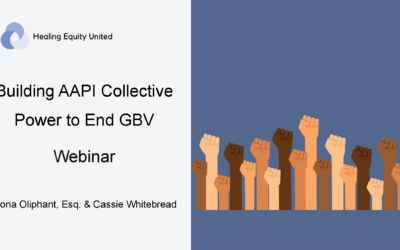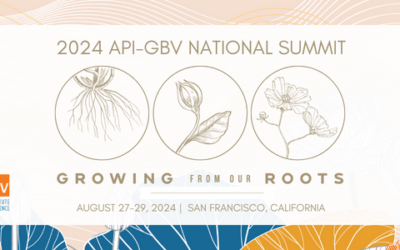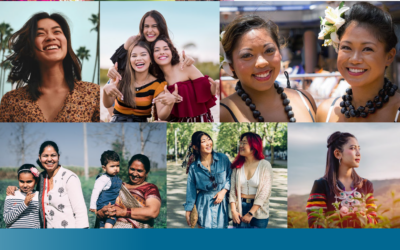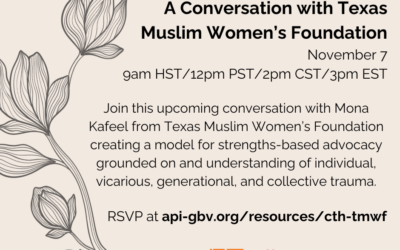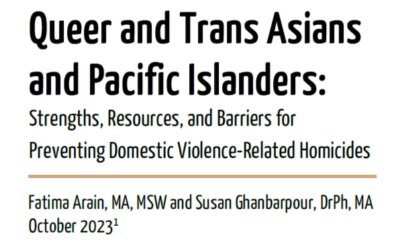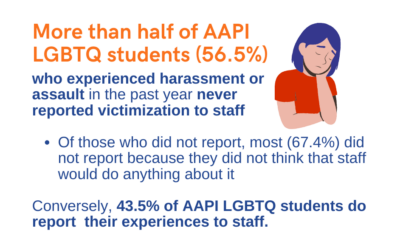3/29/23 at 12:00pm PT/3pm ET
Join this 45 minute virtual event to learn about the Asian Foster Family Initiative (AFFI) from Korean American Family Services (KFAM). AFFI is the U.S.’ first and only AAPI-focused foster family agency; it addresses the critical need for culturally-sensitive placement for the 600-800 AAPI children in Los Angeles County’s foster system. As these children are frequently survivors of abandonment, abuse and neglect, and often witnesses to family violence, placement in foster homes without a cultural match can lead to increased trauma. KFAM’s advocates provide training and support to Asian families interested in fostering throughout the preparation, application, and post-application/adoption process.
This event is intended for AAPI-serving advocates who are interested in learning more about the unique AFFI program, and who may be interested helping to address the foster care crisis in small or large ways, from advocacy and partnership, to development of a foster/adoption program. With over 400,000 children in the nation’s foster care system and only 200,000 foster families, this is not only an urgent issue, but also one that intersects closely with our work to improve responses to families experiencing GBV.
Related Resources
Critical Intersections of FGM/C: The Value of Intersectionality in Cross-Collaboration
April 23, 8am HST/11am PST/1pm CST/2pm ESTOn April 23rd, API-GBV will be partnering with Sahiyo U.S. for Critical Intersections of FGM/C: The Value of Intersectionailty in Cross-Collaboration, a presentation of Sahiyo’s Mixed Methods Report as part of the survivor and...
Building AAPI Collective Power to End GBV
March 7, 8am HST/11am PST/1pm CST/2pm ESTAsians, Asian Americans, and Pacific Islanders (AAPIs) are often left out of conversations around diversity, equity, inclusion, and belonging (DEIB) in the U.S. Often lumped together as a “model minority,” certain AAPI groups...
2024 APi-GBV National Summit: Growing From Our Roots
Latest Update: Early Bird Registration Open Now Through June 1!See all available API-GBV National Summit information below:This page will continue to be updated as more information is released. For any technical issues or additional questions, please contact our team...
Connected and concerned: Online sexual harassment of teenagers of Asian descent on dating platforms
February 29, 8am HST/11am PST/1pm CST/2pm ESTGenerative AI, with its ability to create morphed photos and deepfakes, is negatively impacting teenagers, especially female teenagers of Asian descent, online and influencing their identity in digital spaces. This...
Impact Report FY22: Growing Stronger Together to Build Collective Power
The Asian Pacific Institute on Gender-Based Violence (API-GBV) is a culturally specific national resource center on domestic violence, sexual violence, trafficking, and other forms of gender-based violence in Asian/Asian-American and Pacific Islander (AAPI)...
Culture, Trauma, and Healing: A Conversation with Texas Muslim Women’s Foundation
November 7, 9am HST/12pm PST/2pm CST/3pm ESTIn our work, we recognize that cultural-responsiveness and trauma-informedness are not end goals, but a continuous process of learning and adapting our advocacy to best meet the layered and changing needs of survivors. We...
Queer and Trans Asians and Pacific Islanders:
Strengths, Resources, and Barriers for Preventing Domestic Violence-Related Homicides
This report presents a groundbreaking qualitative research project focusing on the prevention of domestic violence-related homicides among queer and trans Asians and Pacific Islanders (QTAPI). It uncovers the complex web of risk factors, including isolation and...
AAPI LGBTQ+ Experiences of GBV
This factsheet summarizes the layered needs and experiences of lesbian, gay, bisexual, transgender, queer, and more (LGBTQ+) Asian, Asian American, and Pacific Islander (AAPI) survivors and communities in the U.S., based on the current literature available. Although...


